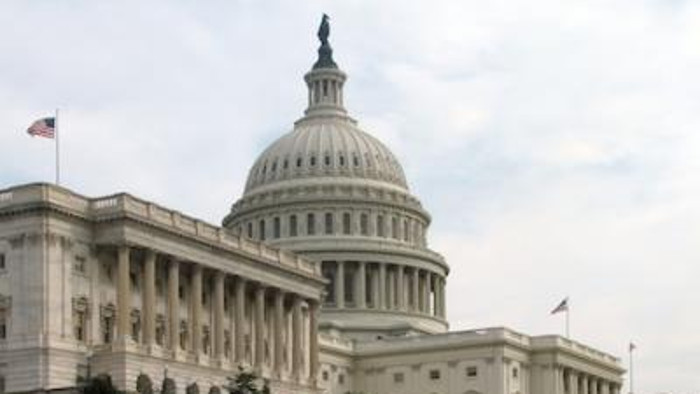Lawmakers Urge DoJ to Review Warner Bros. Discovery Merger
Four Democratic lawmakers have asked the DoJ to “investigate the state of competition” in labor and consumer markets impacted by the deal

WASHINGTON, D.C.—Four Democratic lawmakers have sent a letter to the Department of Justice urging it to “investigate the state of competition” in labor and consumer markets impacted by the merger of Warner Bros. and Discovery.
The letter was signed by Sen. Elizabeth Warren, Rep. David Cicilline, ranking member of the House Judiciary Subcommittee on the Administrative State, Regulatory Reform and Antitrust, Rep. Pramila Jayapal and Rep. Joaquin Castro.
The completion of the deal “appears to have enabled Warner Bros. Discovery (WBD) to adopt potentially anticompetitive practices that reduce consumer choice and harm workers in affected labor markets,” the letter said.
The letter applauded the Department for its recent antitrust efforts and said that “as the Department continues its laudable work to protect workers and consumers, we urge the Department to closely examine consummated mergers that merit a subsequent review in light of post- consummation actions—such as those of WBD.”
The lawmakers contended that “Warner Bros. Discovery’s market share has enabled it to harm workers and heighten barriers to entry in the media and entertainment industry….[T]he WarnerMedia/Discovery merger…enabled the combined WBD to take aggressive measures, harming workers and creatives in the media and entertainment industry while eliminating the disciplining forces of competition that provide workers with the freedom to change jobs or negotiate for better pay and working conditions.”
In the letter the lawmakers cited "numerous labor-force reductions and product cancellations that would limit consumer and worker choice" as examples of limiting consumer choice.
"Shortly after the merger was finalized, WBD began realizing a number of cost synergies that were used to justify the merger in the first place—including cuts to hundreds of jobs for working people," the lawmakers wrote. "First, WBD cut the streaming platform CNN+. The CNN+ cut affected about 350 employees, and four months later, CNN laid off an additional 400 employees. As part of broader restructuring, WBD also cut overall funding for CNN programming, reducing competition for news and hurting the broader ecosystem of journalism. Further cuts to CNN’s planned original television series and termination of the station’s documentary-buying unit illustrate that WBD is trying to sustain its entertainment business at the expense of news and journalism....In total, the aforementioned cuts affected thousands of people. Notably, WBD still has $3.5 billion in planned cuts—which does not bode well for workers.”
Get the TV Tech Newsletter
The professional video industry's #1 source for news, trends and product and tech information. Sign up below.
“WBD’s aggressive measures post-merger indicate that current competition in the media and entertainment industry is inadequate,” the letter concluded. “WBD’s new ownership is hollowing out an iconic American studio. After the merger was consummated, WBD canceled many projects in various stages of development and removed content from its platforms. For example, WBD took 68 titles off HBO Max."
The letter also cited WBD’s plans to combined HBO Max and Discovery+ into one streaming platform. “Currently, the plan for the combined streaming service is to keep an ad-supported plan at ten dollars and an ad-free plan between $15 and $16 a month,” the letter noted. “However, WBD is offering a premium plan for consumers that will cost $20 a month `for viewers who want to view HBO’s signature shows in as high a quality as possible.’ This leaves questions unanswered about whether a lower-priced platform will have reduced quality from the current product—while consumers are paying the same price and lack the transparency necessary to fully evaluate the plans and their relative prices. With fewer alternatives available to consumers, there is less competitive pressure on WBD to innovate or provide a variety of quality content.”
“We respectfully request that the Department take another look at the transaction, considering WBD’s post-transaction conduct,” the letter concluded. “We also hope that the competitive consequences resulting from the WarnerMedia-Discovery merger inform updates to the merger guidelines to ensure that the guidelines reflect the needs of workers, consumers, and content creators in the media and entertainment industry.”
George Winslow is the senior content producer for TV Tech. He has written about the television, media and technology industries for nearly 30 years for such publications as Broadcasting & Cable, Multichannel News and TV Tech. Over the years, he has edited a number of magazines, including Multichannel News International and World Screen, and moderated panels at such major industry events as NAB and MIP TV. He has published two books and dozens of encyclopedia articles on such subjects as the media, New York City history and economics.

